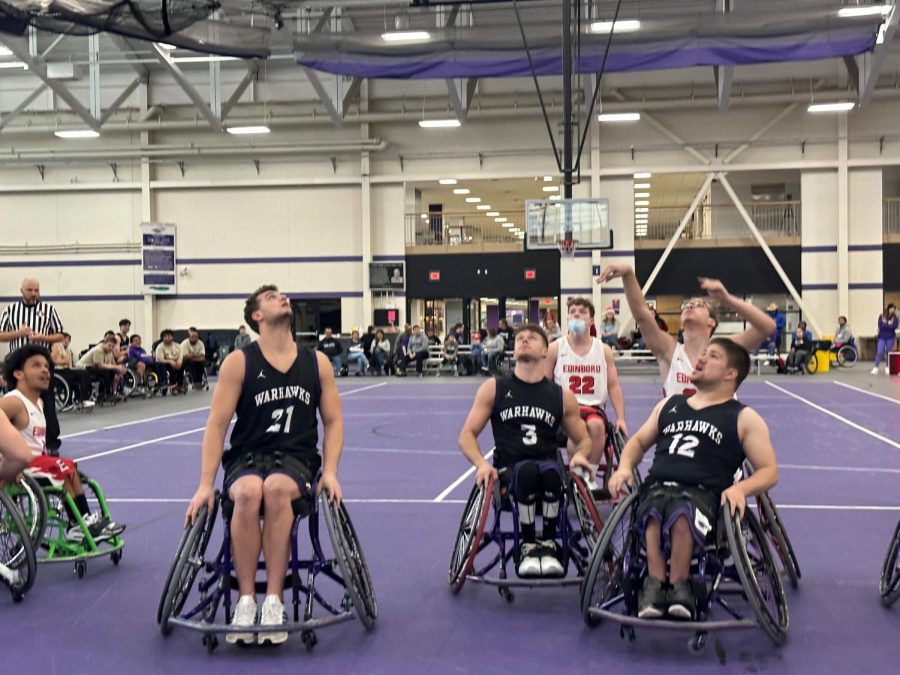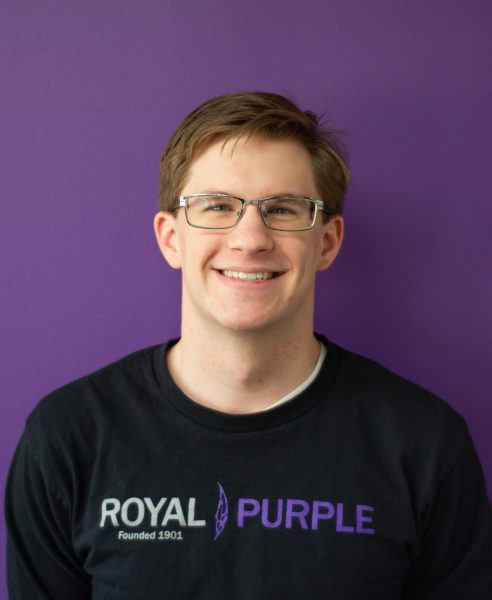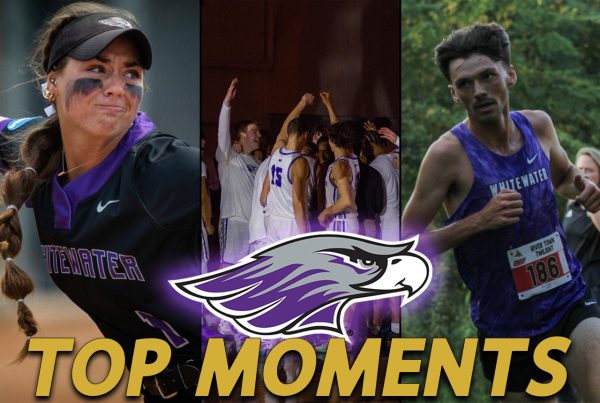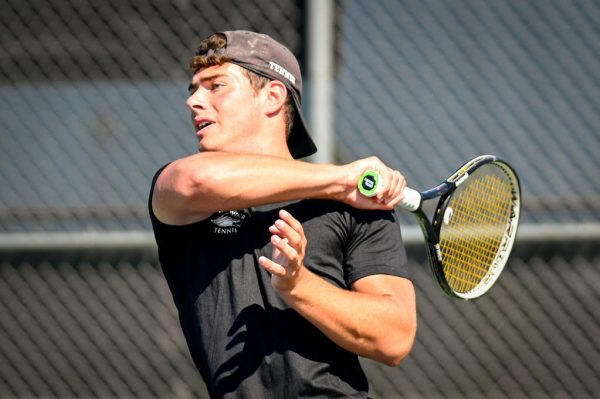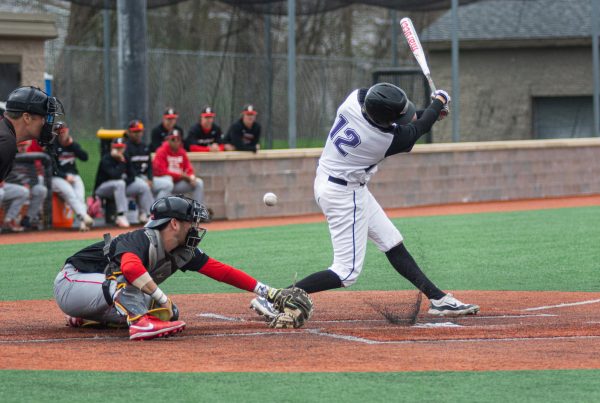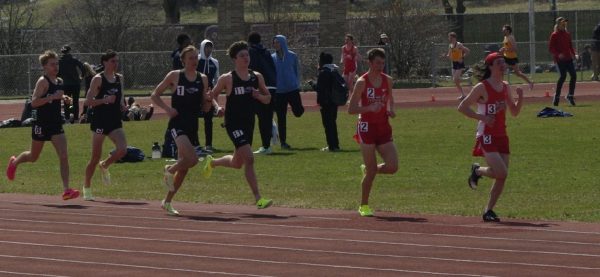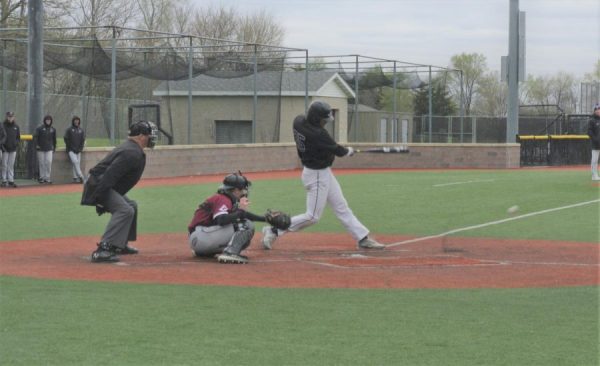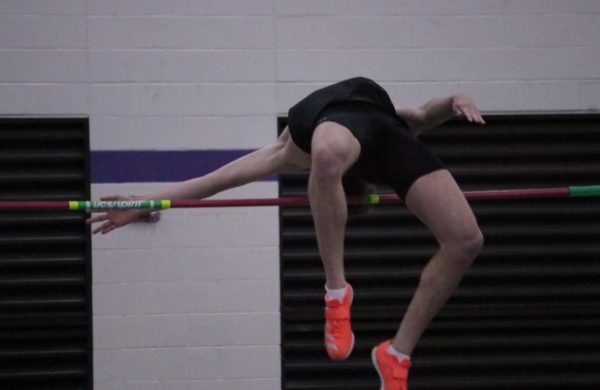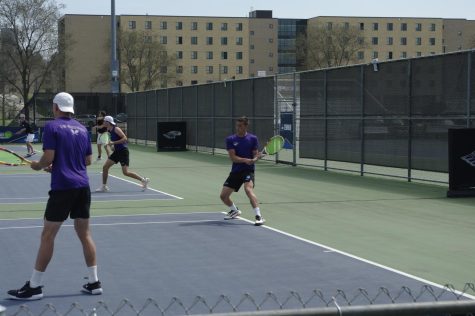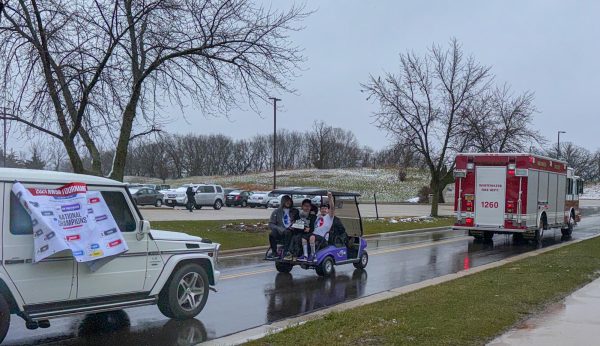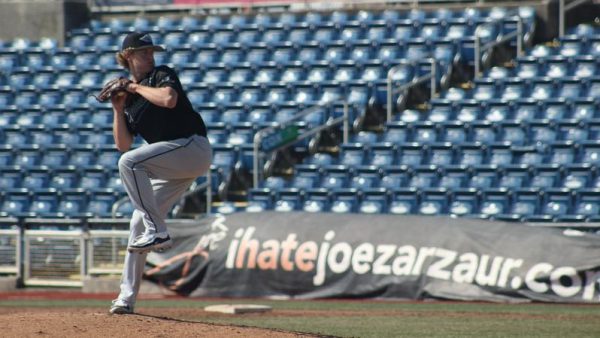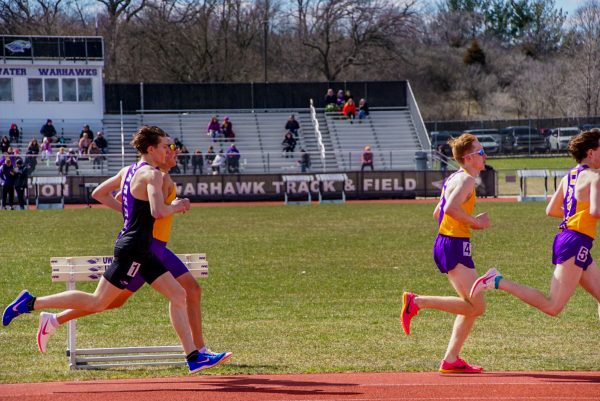Wheelchair hoops shoots for success
(left to right) Thomas Oberst, Talen Jourdan, and Benny Guerin getting ready for a rebound on Saturday, Dec. 3, 2022 in Kachel Fieldhouse.
February 19, 2023
UW-Whitewater is well known for its athletic programs that have been national powerhouses. Wheelchair basketball however is not as well known as many other sports, yet the wheelchair basketball program’s success goes beyond that of any other Warhawk sport.
The men’s team has 13 national titles, including two three-peats. The women’s team has three national titles of their own that were won in consecutive seasons. The teams compete in the National Wheelchair Basketball Association’s Intercollegiate division.
Founded in 1973, Whitewater has maintained a winning culture since their first national title in 1982. Though the ways of winning have a long history, that standard certainly didn’t happen overnight.
“I think it’s been the culture that has been set up through years and years,” said former head coach Jeremy “Opie” Lade. “It wasn’t something I did. The coach before me Tracie, I learned a lot from him, it wasn’t something he did. It’s not something an individual gets credit for. I think it’s the culture that’s been built up and I think we have a culture of working hard to be successful but also having fun during that process.”
The program’s long history of success includes more than just national titles. The program has produced 26 Team USA wheelchair basketball paralympians, 21 men and five women. 13 Whitewater alumni have coached Team USA. In addition to that 17 other Warhawks have represented other nations in the paralympics.
How can a little place like Whitewater foster so much success? Well it all comes down to that culture and enjoying the sport so much all while journeying towards becoming a world class athlete.
“Once you start getting success, success breeds success. You have to give a lot of credit to some of our early coaches and some of our early athletes and coaches that became paralympic athletes and then people willing to be around them because they know the recipe for success,” Lade, a paralympic athlete and coach himself, said. “I think it’s a product of the culture that we’ve built. Once you start seeing success, whether it’s national championships or paralympics, dominoes start to fall.”
Lade has been a Warhawk from the very beginning. He attended the first ever Whitewater adaptive sports camp in 1993 and has been a part of each camp since. When making a decision on where to go to college, one option made the most sense.
“At that point in my life Whitewater was home for me,” Lade said.
Lade went on to coach the Warhawks to win six national titles in his 12 years at the helm. With such success he knows plenty about the challenges that Jake Williams, the Warhawks new coach, is facing.
“The same challenges that Pat Miller and Keri Carollo have in their basketball programs to be successful are the challenges that we are seeing,” Lade said.
However it can be multiplied for the wheelchair basketball programs.
Purely from a numbers standpoint, it is difficult to recruit for wheelchair basketball because the population of people with disabilities and who play the game is relatively small. Not to mention those people need to want to, as Lade called it, take on two “full time” jobs in being a college student and being an athlete.
The program also faces competition that comes from places who are, bluntly put, better off. Of the 11 to 12 teams they compete against, Whitewater is one of the smallest. Teams from down south, like Alabama, Auburn and Texas-Arlington have more money to work with as well as better weather.
Campus does its best to support the program however according to Lade the success that the Warhawks have had is disproportionate to their resources, especially when compared to their bigger school competition.
The culture is part of why Warhawk wheelchair hoops has been able to have such great success. Its legacy is one that Williams is lucky to have behind him as he coaches the team for his first time. Lade, as well as many other alumni, are still around to guide him as he learns how to deal with challenges that go beyond the X’s and O’s.
“Learning as you go. Doing everything. It starts with good players, you’ve got to get good players for one thing. I mean the culture there is big,” Williams said.
At the end of the day Warhawk wheelchair basketball is about finding ways to win, about being successful. Having disabilities isn’t some big point of emphasis for them, that’s just something that they happen to live with.
“A lot of people focus on the fact that our athletes have disabilities. But within our program it’s about being successful. It’s not overcoming disability, that’s not what our program is, our program is finding a way to win,” Lade said.
March 15 through 18 Whitewater will show off that pursuit of success as they host the national tournament in the Kachel Gymnasium.

